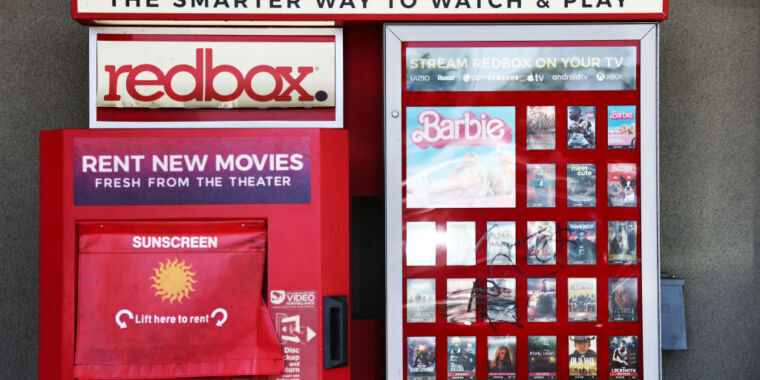It’s sensible for businesses to shift from physical media sales. Per CNBC’s calculations, DVD sales fell over 86 percent between 2008 and 2019. Research from the Motion Picture Association in 2021 found that physical media represented 8 percent of the home/mobile entertainment market in the US, falling behind digital (80 percent) and theatrical (12 percent).
But as physical media gets less lucrative and the shuttering of businesses makes optical discs harder to find, the streaming services that largely replaced them are getting aggravating and unreliable. And with the streaming industry becoming more competitive and profit-hungry than ever, you never know if the movie/show that most attracted you to a streaming service will still be available when you finally get a chance to sit down and watch. Even paid-for online libraries that were marketed as available “forever” have been ripped away from customers.
When someone buys or rents a DVD, they know exactly what content they’re paying for and for how long they’ll have it (assuming they take care of the physical media). They can also watch the content if the Internet goes out and be certain that they’re getting uncompressed 4K resolution. DVD viewers are also less likely to be bombarded with ads whenever they pause and can get around an ad-riddled smart TV home screen (nothing’s perfect; some DVDs have unskippable commercials).



I’m sorry, is this a special version of DVD that can store 4K video? Uncompressed?
It’s easy as long as you’re okay with only being able to fit probably 1-2 minutes of video, the resulting disk not playing in any consumer player ever, and probably not even being capable of real time playback on a powerful PC with a fast drive.
They’re talking about 4K Ultra HD Blu-ray, which was introduced in 2016. The video is still compressed, but it’s still much higher quality than DVD and Blu-ray, and can hold 60-100 GB of data.
But they wrote “DVD”. I’m just nitpicking.
Ah, gotcha. It’s annoying when people use “DVD” as a catch-all term for all optical media.
It is 😅 Words have meaning!
At the very least, it’s still (generally speaking) higher quality video than streaming. It’s not uncompressed, though.
Surely not? DVD is 576p/i (PAL) and 480p/i 💀. Not even 720p. 720p looks like garbage on a 4K display IMO. I really hope you are getting higher resolution from your streaming services than that, otherwise I think you’re getting ripped off. (Streaming services are a ripoff to me regardless, but that’s another point.)
Others replying to the comment included Blu-ray, so I did, too. I assumed it was a given to include that since others had already brought it up.
No harm done. I’m mostly just being facetious. 😅❤️
4K BluRay discs are compressed with HEVC. There’s no way to get consumer 4K video uncompressed.
Uncompressed 4K@30fps requires A 6000mbps data rate. BluRay caps out at 144mbps.
A 90 minute movie would be 4TB. BluRay caps out at 128GB.
Exactly. And a regular DVD caps at 4.7 GB if I’m not mistaken. Not even close.